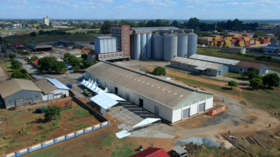The US, India, and Brazil accounted for 60% of Moscow’s entire exports of the product in 2023, according to RIA Novosti
The US was among the three biggest importers of Russian fertilizers in 2023, RIA Novosti reported on Thursday, citing data from the UN Comtrade platform and trade statistics.
Despite being at the forefront of the Western sanctions war against Moscow, the US boosted fertilizer imports from Russia to 4.3 million tons last year, worth $1.6 billion – up from 2.5 million tons in the previous year, according to the agency’s calculations.
That made the US the third-biggest buyer, behind Russia’s BRICS partners Brazil and India.
Brazil retained its position as the main importer of Russian fertilizers in 2023, purchasing 9.4 million tons, worth roughly $4 billion. India followed, significantly increasing its purchases to 4.8 million tons, worth $2.2 billion, from 3.6 million in 2022.
When combined, Brazil, India, and the US accounted for roughly 60% of Russia’s overall fertilizer exports, which amounted to a total of 32 million tons worth almost $14 billion.
Other major buyers of Russian fertilizers included China, with an import volume of 2.1 million tons ($892 million), and Indonesia with 1.1 million tons ($481 million). Türkiye, Denmark, Germany, France, and Malaysia were also among the top purchasers.
Moscow faced unprecedented sanctions from the West following the start of the Ukraine conflict in early 2022. While Russian fertilizers and grain have not been directly targeted by restrictive measures, their export has been affected by financial, shipping, and insurance constraints placed on Moscow.
Consequently, Russia’s fertilizer exports dropped to roughly 27 million tons in 2022 from 32.3 million in 2021. It has since remedied the situation by gradually redirecting a significant part of shipments to ‘friendly’ nations that did not join sanctions. Moscow has also repeatedly called for restrictions affecting its agricultural trade to be lifted, warning of potentially dire consequences for global food security.
For more stories on economy & finance visit RT’s business section


